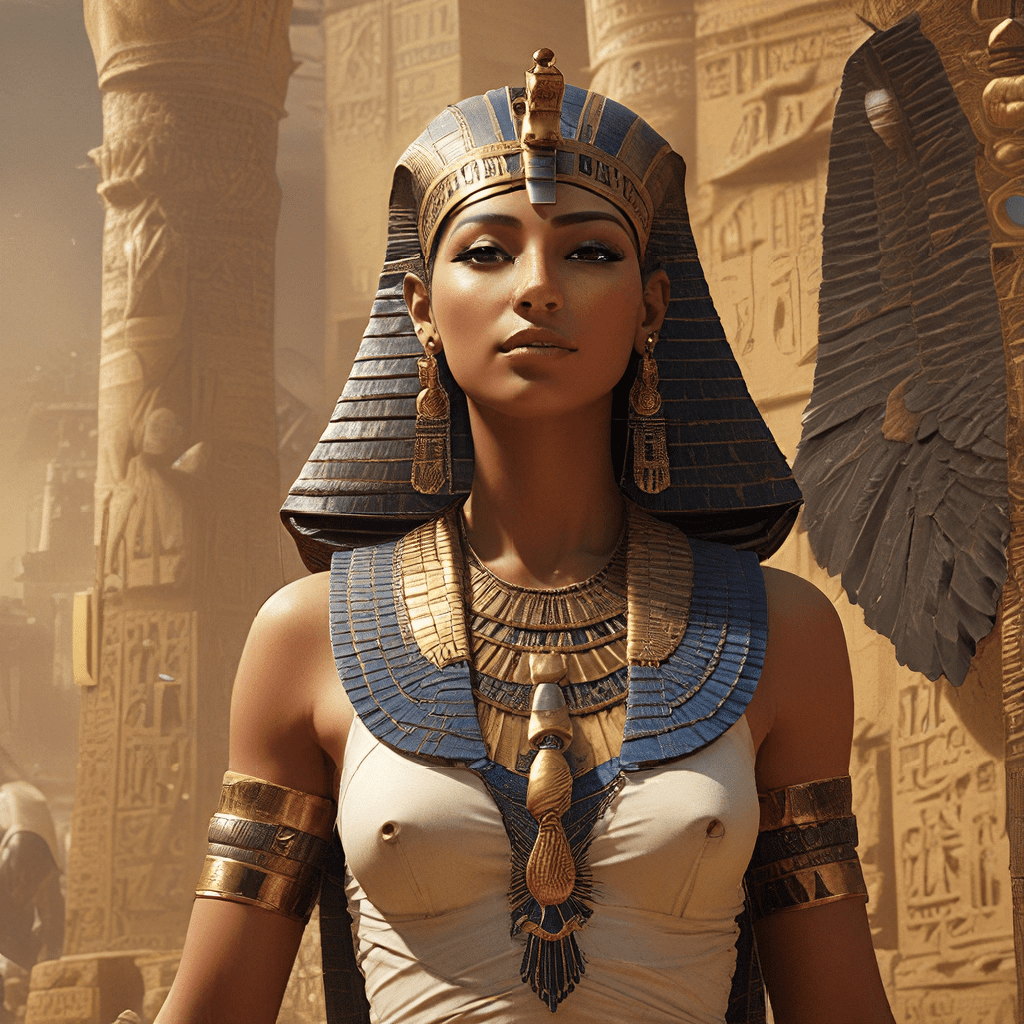The Magic of Maat: Exploring the Egyptian Concept of Divine Justice
1. Introduction: Unveiling the Essence of Maat
Maat, a crucial concept in ancient Egyptian civilization, transcends a simple definition. It represents a multifaceted idea that encapsulates cosmic order, moral righteousness, and divine justice. Maat’s influence permeated every aspect of Egyptian life, from their understanding of the universe to their social interactions and legal systems. Exploring Maat offers a chance to understand the ancient Egyptians’ worldview and discover timeless principles that remain relevant in today’s world.
2. Maat: The Cosmic Order and Balance
Maat embodied the cosmic order and harmony that governed the universe. Egyptians believed that Maat maintained balance in the celestial realm, influencing the movement of stars, the rise and fall of the sun, and the changing seasons. Maat also governed the natural world, ensuring the regular flooding of the Nile River, vital for their agriculture. This cosmic order extended to the cycle of life and death, with Maat ensuring the smooth transition between the earthly realm and the afterlife. The Egyptians visualized Maat through powerful symbols like the balance scale, representing the weighing of souls in the afterlife, and the world pillar, symbolizing the axis of the universe and the connection between heaven and earth.
3. Maat: The Foundation of Morality and Justice
Beyond the cosmic realm, Maat served as the foundation for morality and justice in Egyptian society. It represented the ideal of righteousness, truth, and fairness, shaping their ethical behavior and social norms. Maat promoted justice and equality, advocating for the protection of the weak and the punishment of the guilty. The Egyptians believed that living in accordance with Maat brought prosperity and happiness, while violating it resulted in misfortune. This emphasis on justice and fairness is evident in their sophisticated legal system, which included codes of conduct and carefully designed court procedures.
4. Maat: The Divine Authority and its Guardians
Maat was not merely a concept but also a divine entity, personified as the goddess Ma’at. Ma’at, often depicted as a woman with a feather on her head, represented the embodiment of cosmic order and divine justice. She played a vital role in maintaining harmony in the universe, ensuring the balance of the celestial bodies, and upholding the principles of righteousness and truth. Another deity associated with Maat was Thot, the god of wisdom and knowledge, who was often depicted holding the symbol of Maat, the feather. Thot played a crucial role in dispensing justice and upholding truth, ensuring the proper functioning of the universe. Maat’s importance is further evident in ancient Egyptian rituals and ceremonies, where offerings were made to her for guidance and protection.
5. Maat: The King’s Duty and the People’s Responsibility
The Egyptian king was considered the earthly embodiment of Maat, responsible for maintaining order, dispensing justice, and upholding truth. He was expected to rule with fairness and compassion, ensuring the well-being of his people and the stability of the kingdom. The king’s role as the guardian of Maat was reinforced through elaborate rituals and ceremonies, where he symbolized the divine connection to cosmic order. The Egyptian people, in turn, were obligated to live in accordance with Maat, adhering to its principles of truthfulness, fairness, and compassion. They understood that their actions had consequences, not only in this life but also in the afterlife, where their souls would be weighed against Maat’s feather.
6. Maat: The Path to Harmony and Happiness
Living in accordance with Maat was seen as the path to individual and societal well-being. By embracing truthfulness, fairness, and compassion, Egyptians believed that they could create harmony in their lives and in their communities. Truthfulness ensured honesty and transparency in their interactions, while fairness promoted equality and justice in their dealings with each other. Compassion allowed them to show kindness and empathy, fostering a sense of community and shared responsibility. Violation of Maat, however, resulted in disharmony and misfortune. This could include social unrest, natural disasters, or even misfortune in the afterlife. The Egyptians emphasized the importance of restoration, believing that even if they strayed from Maat, they could seek forgiveness and return to the path of righteousness.
7. Maat: A Timeless Principle
While ancient Egyptian civilization has long since passed, the concept of Maat remains relevant to our modern world. Its emphasis on cosmic order, moral righteousness, and divine justice continues to inspire us to strive for harmony, truth, and fairness in our lives. Maat reminds us that our actions have consequences and that striving for a just and equitable society is essential to our collective well-being. As we navigate the complexities of the modern world, the timeless wisdom of Maat offers valuable insights into creating a more harmonious and just society for all.




